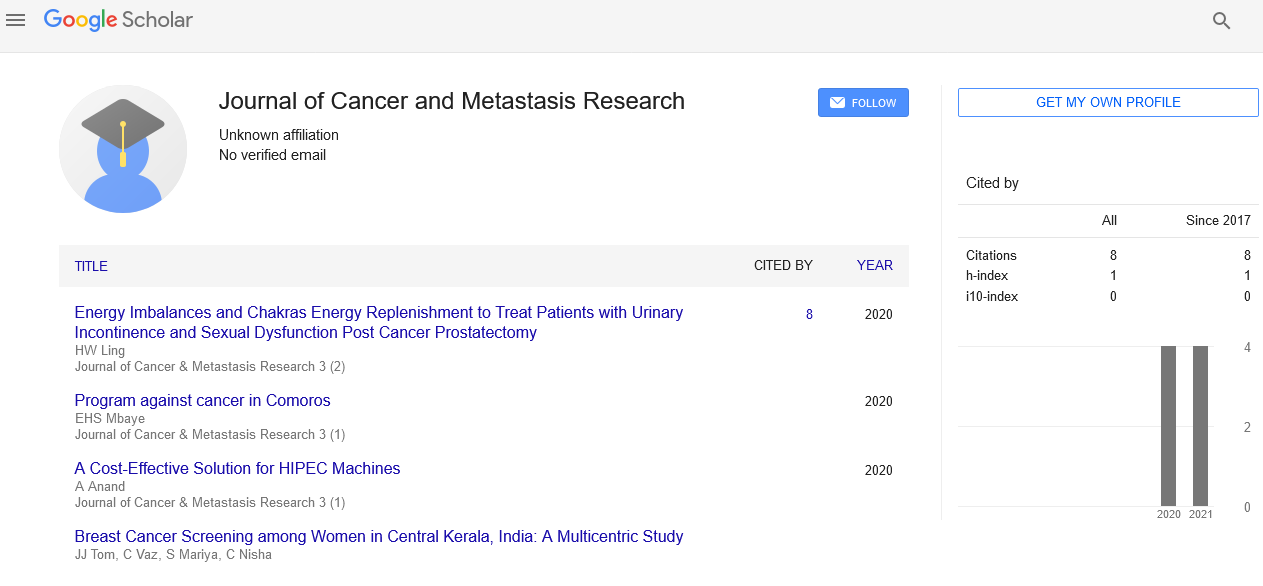
Sign up for email alert when new content gets added: Sign up
Insulin-like growth factor system alters the differentiation of placental mesenchymal stem cells into skeletal muscle
Joint Event on 24th International Conference on CANCER RESEARCH AND PHARMACOLOGY & International Congress on STRUCTURAL BIOCHEMISTRY, STEM CELLS AND MOLECULAR BIOLOGY
August 5-6, 2019 | Singapore
Doaa Aboalola
Western University, Canada
Posters & Accepted Abstracts: J Can Res Metastasis
Abstract :
Insulin-like growth factors are major components of the stem cell niche, as they regulate proliferation and differentiation of many tissues including skeletal muscle. Insulin-like growth factor binding protein-6 (IGFBP-6) is expressed in developing muscle cells and is the main regulator of IGF-II (fetal IGF). To date, no previous studies have been reported relating placental mesenchymal stem cells (PMSCs), muscle differentiation, and IGFBP-6
We hypothesized that IGFBP-6 regulates the maintenance of pluripotency of PMSCs and promotes their differentiation into muscle.
Objectives:
1) to investigate the capacity of PMSCs to differentiate into muscle; and 2) to evaluate the intracellular and extracellular actions of IGFBP-6 on PMSCs muscle differentiation.
Methods: Chorionic villi were collected from preterm placenta and stem cell identity was verified. Cells were then differentiated into muscle for 14 days and the impact of IGFBP-6 was investigated by adding IGFBP-6 or silencing it using siRNA.
Results: Isolated cells differentiated into muscle cells, forming multi-nucleated fibers expressing muscle markers with increased levels of IGFBP-6 and decreasing levels of pluripotency markers. Additionally, extracellular addition of IGFBP-6 significantly increased protein levels of muscle commitment maker Pax3/7, with an increase at the earlier time points for muscle markers that goes down by time. Interestingly, both SOX2 and OCT4 levels correlate with IGFBP-6. On the other hand, silencing IGFBP-6, significantly decreased both pluripotency and differentiation markers at the earlier time points. we identified the signal transduction mechanisms of IGFBP-6 on muscle differentiation by placental mesenchymal stem cells (PMSCs). We also showed that muscle differentiation required activation of both AKT and MAPK pathways. Interestingly, we demonstrated that IGFBP-6 could compensate for IGF-2 loss and help enhance the muscle differentiation process by triggering predominantly the MAPK pathway independent of activating either IGF-1R or the insulin receptor (IR). These findings indicate the complex interactions between IGFBP-6 and IGFs in PMSC differentiation into the skeletal muscle and that the IGF signaling axis, specifically involving IGFBP-6, is important in muscle differentiation.
Conclusion: IGFBP-6 regulates PMSC differentiation into muscle, with more prominent effects at the beginning of the differentiation process when PMSCs commit to muscle formation.
Biography :
E-mail: doaa.aboalola@gmail.com




